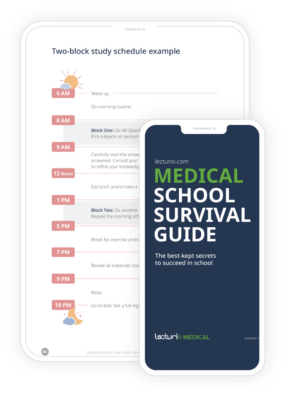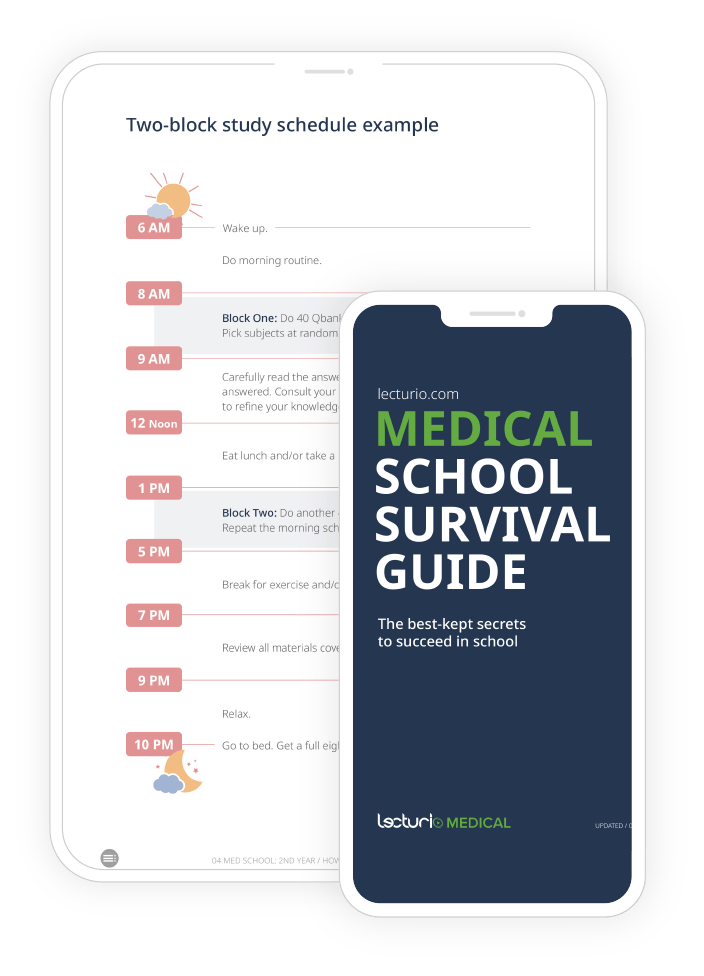Most of us spend a lot of time thinking about our decisions before and after we’ve made them. We constantly ask ourselves “What if?” and “What comes next?”, making sure that we don’t regret the next step we take. Going to medical school is no exception. It can be a daunting, life-changing, and costly decision to make. Most people who go really think it through. Some people eventually realize it’s not for them – whether that is early on, during medical school, or even years after working as a clinician. Each person has a different reason for shifting their career trajectory, from burnout to waning interest.
Despite all these uncertainties, your journey in medicine doesn’t stop when you graduate, drop out, or don’t get accepted into medical school in the first place. So, we ask ourselves, “What’s the next step?”
Alternative Careers for Doctors and Physicians
Regardless of your reason for stepping out of the “traditional” career trajectory of going to medical school then working as a practicing physician, or if you weren’t interested in this path in the first place, there are many options to consider:
Research & journalism
Despite their reputation for having awful handwriting, many doctors are also talented writers. Medical journalism makes use of mass media to get their ideas across, depending on the purpose of the writing. At a time in which false information travels as fast as evidence-based information, medical journalism is a much-needed profession. Furthermore, being able to explain and break down complex medical topics in layman’s terms is much easier with a medical background!
Research, on the other hand, requires a lot more technical skills in addition to writing. Medicine, like many fields, is constantly evolving. We have achieved more in medicine the past hundred years than in any other point in time and everything we do in the field is a result of years of research. Seventy years ago, the average lifespan of a person was somewhere around 45 years. Now, we have cures to diseases that used to be fatal, and have since raised the average lifespan to 72 years.
The field of medicine has come so far and is still in need of fresh minds to push it even further.
Legal & forensic
For those who also wanted to become lawyers or work on legal cases in general, did you know you can do it with medicine? Medico-legal professionals use medical and scientific aspects in presenting evidence in legal cases. Taking this as a dual course could lengthen your stay in medicine up to 6 years, or even longer if you choose to attend medical school then enroll in law school after.
Forensic pathologists are for medical degree (MD) holders who really want to get down and dirty into criminal law cases. While it may not always be like it is in the movies, there is a science to solving the causes of death to a body and the story behind what happened. That is, if you can get past examining dead bodies – a skill that most medical students learn to stomach after their first year – for a living.
Public health
Has someone you know ever been hospitalized and worried about how much the bill would cost? Gotten sick because someone in their community had the same disease? Told someone information they read off the internet that turned out to be false? If you answered “no” to any of these, you’re incredibly lucky. If you answered “yes,” are unsatisfied with your country’s health system, or simply want to make a difference on a larger scale, public health may be for you. This career path covers topics such as statistics, preventive medicine, epidemiology, and more that will help you make the difference you want to see in the world, often starting in your local community.
Teaching
They say that teaching is also a calling.
Not everyone can do it, and as students, we know that for a fact. Some people have a knack for teaching and inspiring a generation of doctors to be better than the last. Others, not so much. If you feel like using your skills and knowledge to nurture a new batch of doctors, teaching might be for you. It can take one teacher to leave a lasting impression on a student and inspire them to become great. The requirements for this job may vary depending on the university you want to teach. Usually, they require you to have a specialization for you to become a lecturer. However, there are courses in some US medical schools that offer dual degrees in Masters of Education or a PhD, which may help your chances in entering and excelling in this career path.
Dual degrees
For those with different passions looking to learn more skills, or who just want to add to their workload, there are medical schools that offer dual degree programs with your medical degree. They can range from PhDs, Master’s degrees, and other programs. But these tracks usually mean an extra 1-2 years of education. Among the most common include MD-MPH (Master of Public Health), MD-PhD (Doctor of Philosophy), MD-MS (Master of Science), and MD-MEd (Master of Education).
I am currently finishing my MD-MBA (Master of Business Administration). While it has extended my stay in medical school by a year and we spend afternoons in management classes, I know the lessons are useful for when I set up my own clinic or run a hospital department.
Where some call it time-consuming, I call it a time investment.
What to Do Instead of Medical School After Dropping Out
Just because you don’t complete medical school doesn’t mean that you have to entirely turn away from the profession. Dropping out of med school can be a practical option for many reasons, the most common of which is burnout. It can get to the best of us, whether it’s the financial burden, increasing workload, or we simply cannot seem to put our hearts into it. There are many other paths you can take – each with their own challenges – that will allow you to continue to pursue your passion for helping others:
Nursing and allied health professions
Many people consider doctors to be of a prestigious profession, but they often forget one vital fact: patient treatment is a holistic effort. While medical doctors may lead the medical team, all members of the team are both important and irreplaceable. Allied health professionals include paramedics, physical therapists, medical technologists, dietitians, and many other professions that literally save lives and improve a patient’s quality of life. If you went to medical school to care for others, playing another role in the medical team would still allow you to do just that.
Veterinary medicine
If you love studying about diseases, their different treatments, and comparative anatomy, this might be the course for you. Veterinarians deal with a wide scope of diseases among different species. They also help with human health by studying and controlling zoonotic diseases. This may be broader and maybe even harder than medicine, but you’ll get to work with different kinds of animals. It’s the perfect choice for people who believe animals deserve health care as much as humans do!
Master’s of science
The only reason we enjoy the medical luxuries we have now, such as vaccines, drugs, evidence-based therapies, and other advances in healthcare, is because research has evolved exponentially in recent years. If you went to medical school to learn, you may learn just as much (if not more) in a Master’s of Science or a related degree program closer to your interests!
Consider another medical school
Different medical schools have different cultures. The problem may lie in the mediums used for teaching or the med school culture in itself. While neither of these approaches may be wrong, it might not be for everyone. This emphasizes the importance of researching and asking students what their med school is like before you make the decision to attend or transfer. You can even visit other schools to see firsthand how the students act and if this is the lifestyle you think could work for you!
Studying medicine has never been easier.
Set yourself up for success with Lecturio.
What to Do if You Don’t Get Into Medical School
Getting into medical school requires a lot of rigorous studying and determination because you need to know if this lifestyle is for you. That being said, not everyone can get into medical school, and there’s nothing bad about that. It may just mean you’re meant for something else or you need to change your approach. We have already discussed the former in the last section, so let’s move on to what else you can do:
Keep trying
Pursuing a medical degree is a challenging path to undertake, and getting in can be just as difficult, but that doesn’t mean you should give up if this is the path you truly want to follow. A friend of mine who was rejected for the 2nd time in a row and was trying for his 3rd attempt said that it reflected his resolve to enter the profession. He got into the school he wanted that year.
So, if you don’t make it on your first try, your next move doesn’t mean giving up a goal you have – but it may be a sign to take a step back, re-evaluate your approach, and try again.
For your dreams, you do what it takes.
For your dreams, you do what it takes, even if it means taking additional classes and hard science courses for the required grades, talking to mentors and med students for advice, or getting a related part-time job for your personal statement.
Find a job or apply for a scholarship
One of the main reasons a student cannot go to medical school is the price of tuition. According to the Association of American Medical Colleges as of 2020, 73% of medical students in the US graduate with debt at an average of $200,000. Medical school can be expensive and it’s hard to expect someone to work while studying full-time. While I have had classmates who worked while in med school, it may not be for you. Another alternative is applying for a scholarship program in your country or the school you’re applying to. The conditions for some scholarships may add extra pressure to your current studies, but it is not an impossible task. With determination and the right support systems, dreams can become reality.
Try somewhere else
Going abroad to study medicine is quite common. Medical schools in different countries will provide new experiences, such as the chance to learn about diseases that are rare in your own country. It also provides the opportunity to broaden your horizons on where you would want to practice medicine. There are many considerations, such as funding and the logistics of moving to another country, but getting to medical school and staying there is all about persistence. A change in environment shouldn’t stop you from becoming the kind of doctor you want to be.
Related videos
In the End…
…entering medical school is incredibly challenging. But what’s more challenging is knowing what’s meant for you. I’ve heard it said that your vocation is somewhere between where you want to be and where the world needs you to be. It doesn’t have to be in clinical practice or somewhere someone else told you to go. Only you can decide where your vocation lies.
So if you want to become a doctor, do whatever it takes. Even if you don’t make it or realize this isn’t for you, the possibilities are endless with more alternatives than I can list in this article, even outside the medical field. But know that there will always be a future in the medical field for those with a vocation towards helping others and making a difference.







